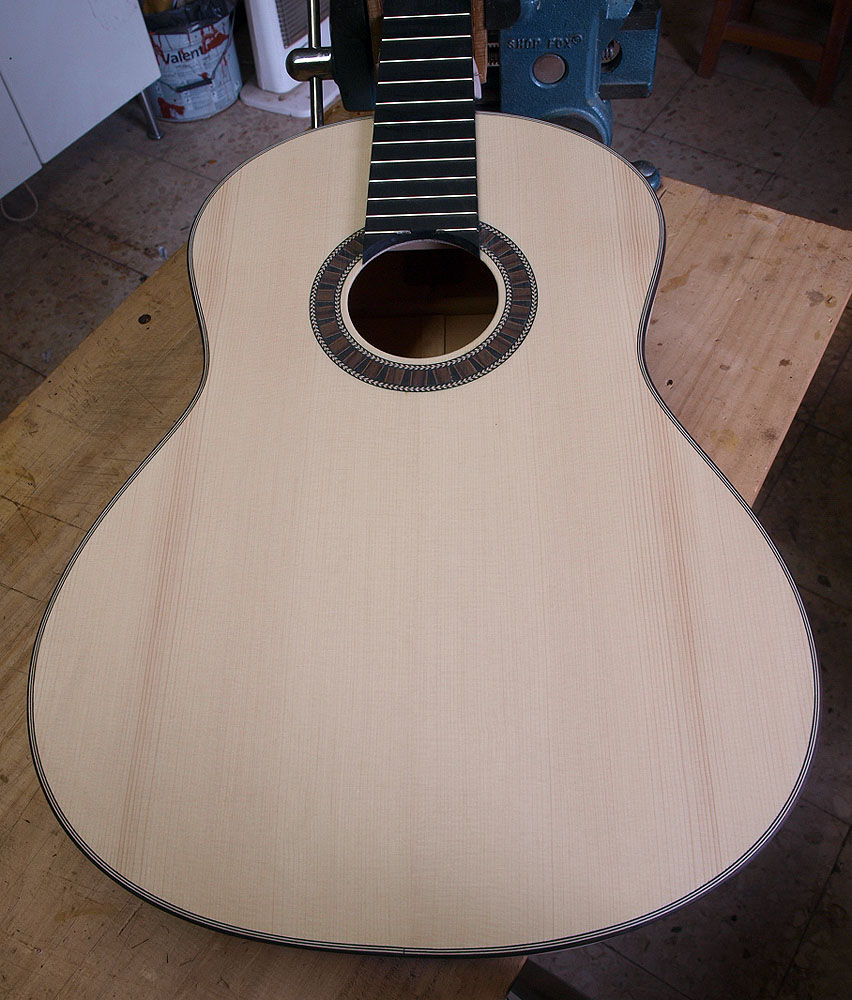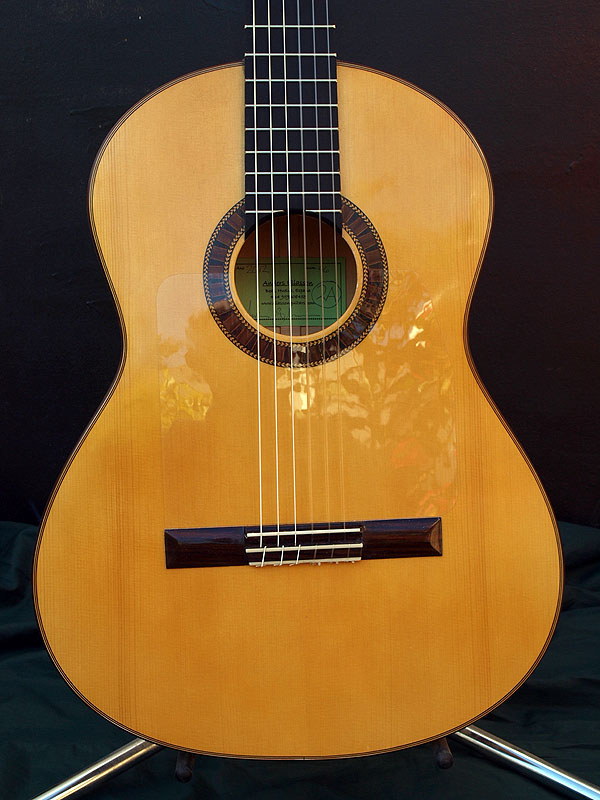|
Anders Eliasson -> Evaluating soundboards (May 7 2012 7:39:16)
|
There´s always a lot of talking about the value of soundboards and other tonewoods. How they sound, what is best etc. Vendors of luhiers wood use grades, like AAAA for the best and A or B (C) for the worst or they might use words like Master grade, 1st grade, 2nd grade etc. (Noone uses words like worst grade hehe )
I get a lot of mails from clients who´ve read a lot of internet sites about wood and what is best. So they want it all to be AAAA, master etc. I always stock wood like that, but it doesnt mean that its what I consider the best myself and when I build a guitar for personal use, I dont care about grading and the last one was with a AA grade top. I have my favorites, based on the almost 100 guitars that I´ve built and a LOT of my wood is bought without grading. Grading is something vendors use in order to be able to sell some wood a lot more expensive, but it doesnt necesarily mean that its the best wood. Many of my German spruce soundboards, I bought some 5 - 6 years ago from the great guitar maker Rolf Eichinger in Granada. Unfortunately he´s not with us anymore, but I think of him every time I look through my soundboards. He liked 5 string banjo and Ray Charles and so do I. Peace to you Rolf, whereever you are.
The soundboard below, is from a 2A guitar that I´m building now. Its going to be for sale within a month or so. The wood is from Rolf. I bought a big stack of soundboards without grading for a very reasonable price.
This piece of German spruce is a very good example of low grade TOP quality tonewood. It would be graded AA (or even A ) because of the red striping towards the sides. But besides that its as good as any top graded wood I´ve ever had in my hands. Its perfectly quatersawn with a very nice silking all over the board. It has nice straight grain, with exactly the amount of anular rings per inch that I like. Not to close, not to wide. And the best of all, weight/stiffness relation is top notch. On 2,2mm its really ligt and still stiff with a bit of that stubborn flexibility that a good soundboard needs.
So.... Maybe we should learn to judge soundwood in another way, or at least understand that what the comercial machine tells us is right, doesnt have to be so.

This is from my blog. Its just a copy, but I thought it would be a good intro to a discussion on this forum.
Images are resized automatically to a maximum width of 800px
|
|
|
|



